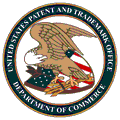
"Red Hat’s settlement of outstanding patent litigation on terms that provide additional protection to other members of the community upstream and downstream from Red Hat is a positive contribution to the resources for community patent defense. We would hope to see more settlements of this kind–in which parties secure more than their own particular legal advantage in relation to the third-party patent risk of the whole FOSS community–when commercial redistributors of FOSS choose to settle patent litigation. SFLC welcomes Red Hat’s efforts on the community’s behalf."
This is what the Novell/Microsoft secret pact should have been - instead of throwing the rest of the open source community under the bus, Novell should have pushed for broader coverage and been open about it all. Look and learn Novell, don't be so slimy and see how the a real leader operates.
This is all wrong.
This is all in the line of the most idiotic pattern of the U.S. judicial system.
Someone sues you. Instead of fighting (if you believe you're right) and go to the stage where a judge reaches a verdict, what is the common practice in business?
Financial settlements.
Patents for All: The System That Could Not Contain Itself
The myth of an all-seeing, all-knowing Congress capable of riding to the rescue is a well-used excuse for keeping bad decisions on the books. But the question of just what is patentable is far too loaded and complex for Congress to handle -- especially given all the other problems the patent system faces and the fact that even modest patent reform legislation has stalled.
Last Thursday, Microsoft filed patent application 2008/134,132, which describes a method of "Developing Software Components Based on Brain Lateralization." At first glance, this sounds quite impressive; direct neural programming interfaces, after all, is the stuff science fiction is made of. Closer examination, however, indicates that our dreams of writing C++ code without that pesky keyboard getting in the way remain elusive. Fancy wording or not, Microsoft is essentially attempting to patent something far more basic: the software Quality Assurance (Q&A) process.
 The Intellectual Monopolies System seems unfair and broken beyond repair. It is created and maintained by a digital minority that is wealthy enough to afford this and in turn gets nurtured by the very same monopoly it shelters and legalises.
The Intellectual Monopolies System seems unfair and broken beyond repair. It is created and maintained by a digital minority that is wealthy enough to afford this and in turn gets nurtured by the very same monopoly it shelters and legalises.
Related to this, some time ago we wrote about ACTA [1, 2], which is -- plainly speaking -- the output of a conspiracy of Intellectual Monopoly (IPR) owners seeking to enforce claimed rights at all costs, even it the impact is high enough to misplace and abuse basic human rights. There is an update on this. [via Glyn Moody]
A small group of countries opposing the inclusion of intellectual property-related issues in World Trade Organization negotiations has issued their response to an earlier “non-paper” that had called for IP issues to be integrated with the upcoming horizontal, or all-inclusive, negotiations at the WTO.
[...]
The paper is referring to a 26 May proposal, in the form of another “non-paper” seeking to ensure that three major IP issues are on the table for the horizontal trade talks.
Big businesses boast of patent benefits, for small businesses